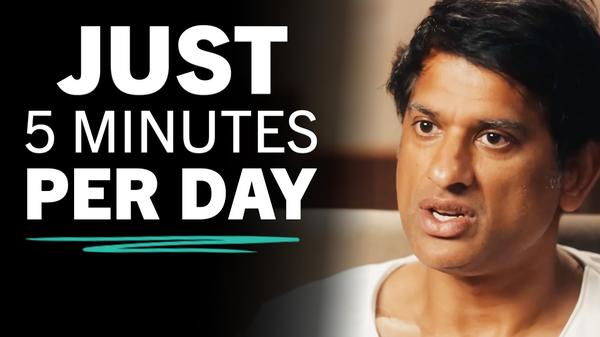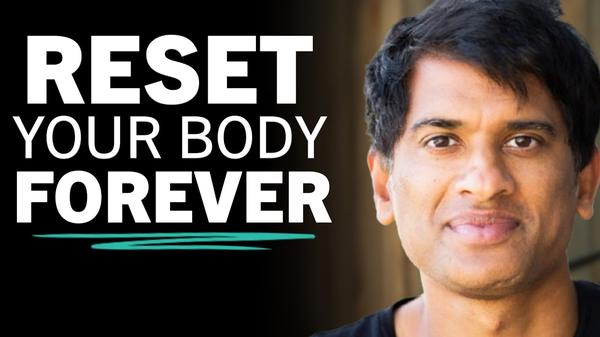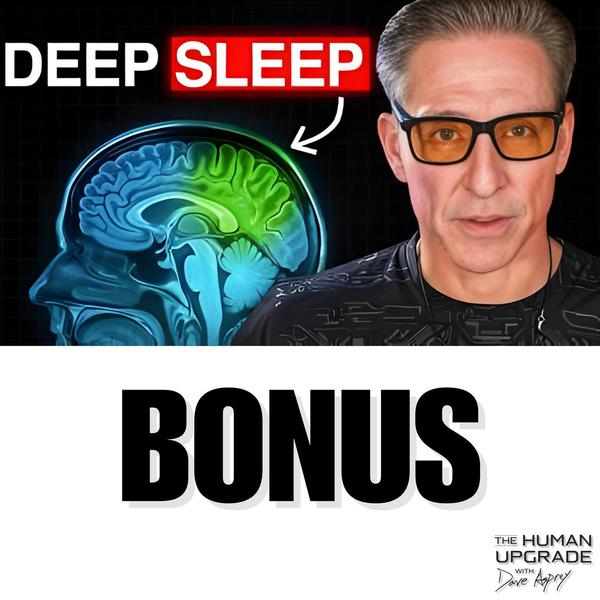
#1 Sleep Neuroscientist: Do This Every Morning To Stop Decline & Stay Young | Russel Foster
Rangan Chatterjee
Feb 7, 2024
Mindsip insights from this episode:
Address junk light problem to reclaim night environment
Similar to how we created an abundance of junk food, the creation of cheap, efficient light since the 1950s has led to a 'junk light' problem where we've invaded the night.
Utilize light therapy to surpass Prozac for depression relief
In a fascinating study on non-seasonal depression, 30 minutes of 10,000 lux light therapy in the morning was found to be more effective than the drug Prozac.
Question sleep tracker validity to avoid sleep anxiety
No sleep federation or the FDA has approved sleep trackers, and their 'medically validated' claims can be based on flimsy studies, sometimes leading to a recognized condition called sleep anxiety.
Recognize tongue's role in storing visceral fat and snoring risk
One of the first places the body stores visceral fat is in the tongue, which can restrict the airway and contribute to snoring.
Sleep separately to enhance relationship quality
Sleeping separately from a partner who disrupts your sleep is not the end of a relationship, but the beginning of a new wonderful phase where both people get decent sleep.
Reduce nighttime peeing by staying active during the day
For sedentary individuals, fluid that collects in the lower limbs during the day is reintegrated when they lie down, which increases blood pressure and triggers the kidneys to produce urine.
Recognize melatonin as a biological marker, not a sleep hormone
Melatonin is most emphatically not a sleep hormone but rather a biological marker of darkness that has only a mild modulatory effect on sleep.
Get sufficient daytime light to counteract evening dim light effects
Recent studies show that getting sufficient bright light during the day (500 lux or more) can abolish the subtle, negative clock-shifting effects of dim light exposure in the evening.
Embrace biphasic sleep for natural rest patterns
Historical and experimental data show that biphasic sleep, or sleeping in two distinct blocks with a period of wakefulness in between, was the norm for pre-industrial humans.
More from
Rangan Chatterjee
Neuroscientist: If You’re Feeling THIS, You’ve Lost Touch With Your True Self
Neuroscientist: If You Feel THIS, You're Living the Wrong Life (Unlock The One You're Meant For)
The 5-Minute Morning Habit That Transformed My Health, Happiness & Marriage
If You Struggle to Sleep, Start Doing THIS Every Morning
The Only 3 Rules You Need to End Cravings & Reset Your Body
You also might be interested in
Your Brain Has A Sleep Switch (Do THIS To Turn It On)
How To COOL Your Body For Better Sleep, INCREDIBLE Travel Sleep Tips & Orion Vs. Eight Sleep With Dr. Michael Breus
Everything You Need To Know About Sleeping Better, Hacking Sleep, Sleep Cycles, Insomnia, Sleep Apnea & More With Dr. Daniel Gartenberg (Best of LIFE Network's Experts!)
This Commonly Missed Disease Can Rapidly Age Your Brain
This Commonly Missed Diagnosis Leads to Rapid Brain Aging













